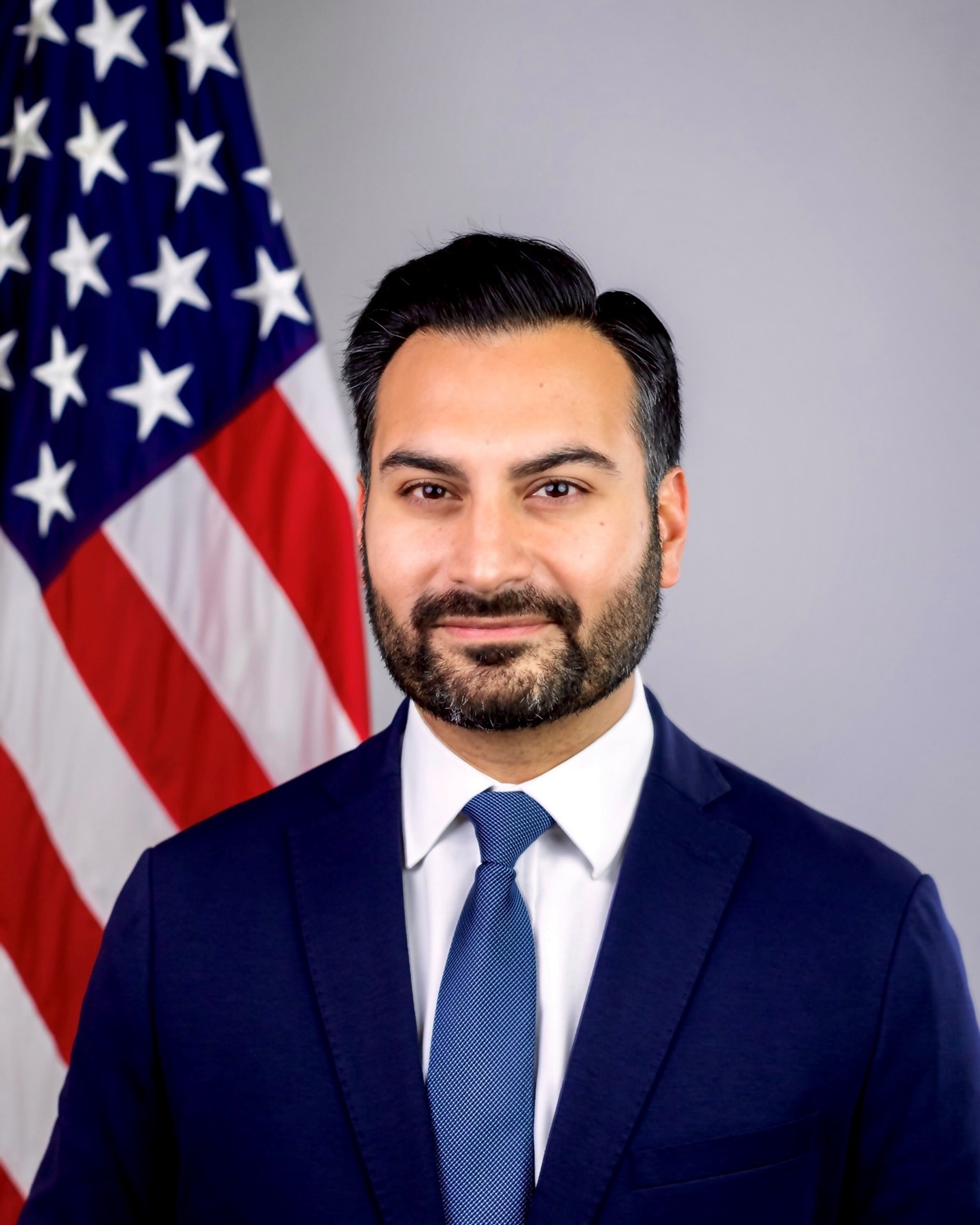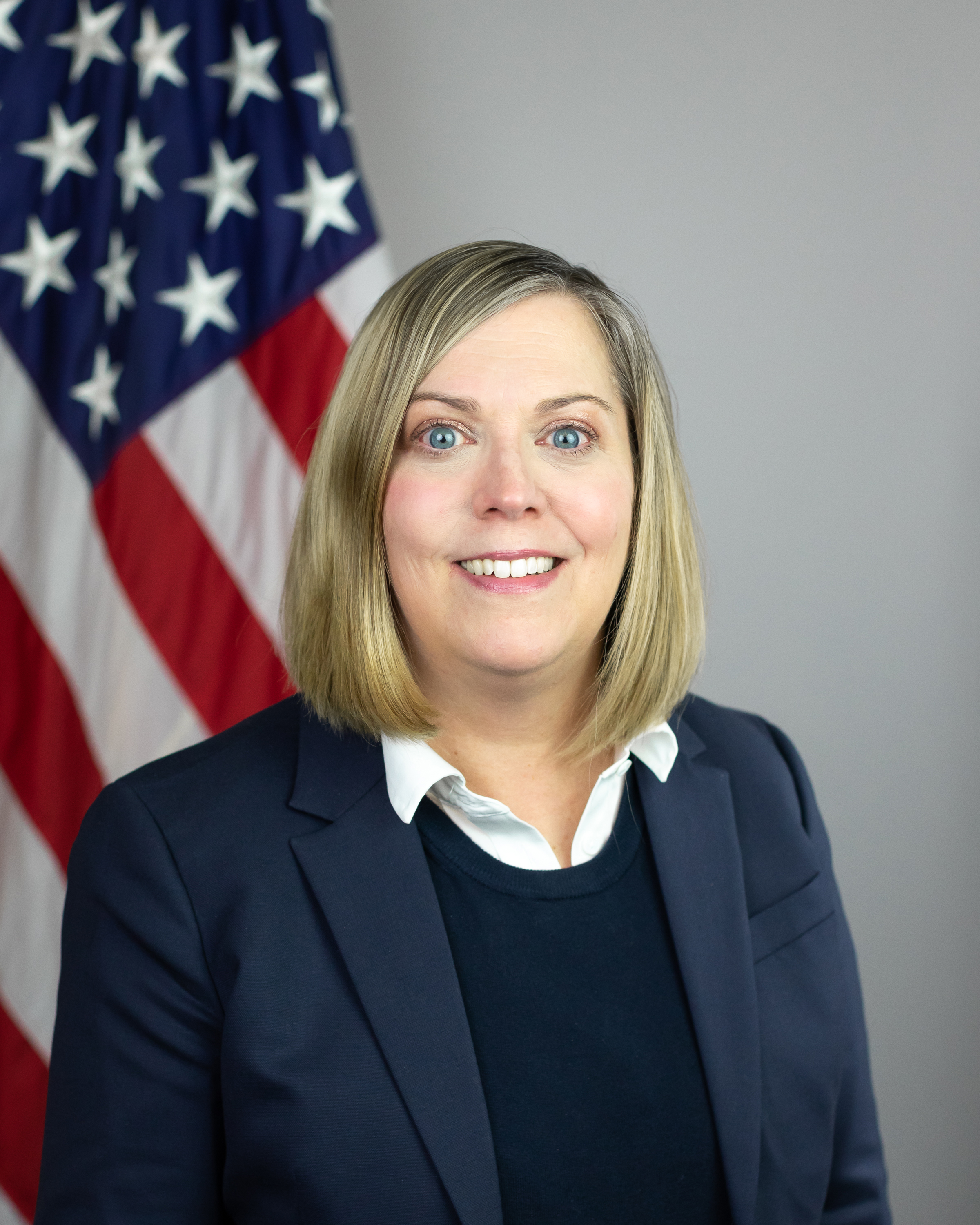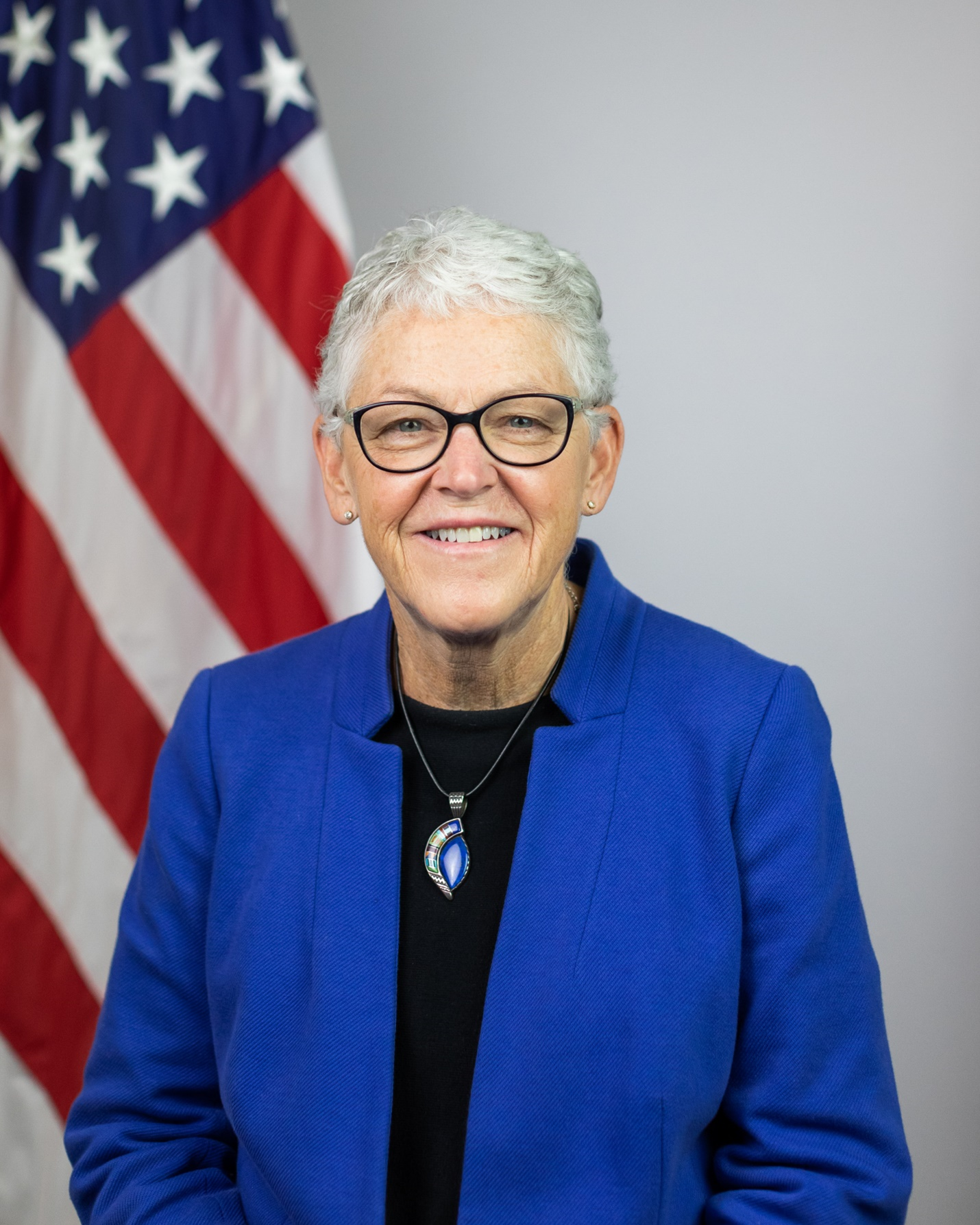Climate Policy Office (CPO)
Leadership
Ali zaidi
Mary Frances Repko

Assistant to the President, White House National Climate Advisor, and Head of the White House Climate Policy Office
Ali Zaidi serves as Assistant to the President of the United States and White House National Climate Advisor. In this role, he leads the White House Climate Policy Office, which coordinates policy development and President Biden’s all-of-government approach to tackle the climate crisis, create good-paying union jobs, and advance environmental justice. Zaidi is a longtime advisor to President Biden, having provided counsel and leadership on climate policy development, legislation, and executive action from day one of the Administration and on the Biden presidential transition and campaign. Zaidi helped design, negotiate, and implement the President’s historic climate and clean energy investment agenda – including the Bipartisan Infrastructure Law, the Inflation Reduction Act, and the dozens of new federal programs and clean energy tax credits created by those landmark laws.
During his time in the Biden-Harris Administration, Zaidi has led on efforts to re-establish U.S. climate leadership, set a national target to cut greenhouse gas emissions by 50-52 percent by 2030; deliver robust executive actions, including regulatory, permitting, and procurement-based initiatives; and secure the largest legislative wins on climate in U.S. history, through the Bipartisan Infrastructure Law and Inflation Reduction Act. Together these efforts have advanced the largest annual deployment of solar, wind, and batteries; brought together the U.S. auto sector around an all-electric future; tackled super-pollutants like methane and HFCs; accelerated conservation of and investment in nature; bolstered domestic adaptation and resilience; and centered U.S. climate action around workers and communities, prioritizing good-paying union jobs, a reinvigorated and more competitive industrial base, and the critical work of environmental justice. He has also led on critical efforts to advance clean air and clean water – from initiatives to improve local air quality to a comprehensive strategy to remove lead pipes and paint.
In his role as National Climate Advisor, Zaidi also serves as a co-chair of the Interagency Working Group on Coal and Power Plant Communities and Economic Revitalization, and as a member of the National Space Council, the White House Task Force on Worker Organizing and Empowerment, the White House Task Force on AI Datacenter Infrastructure, the Council on Supply Chain Resilience, and the Infrastructure Implementation Task Force.
Zaidi joined the Biden-Harris Administration after serving as the state of New York’s Deputy Secretary for Energy and Environment and Chairman of Climate Policy and Finance, where he led the state’s efforts on climate change — driving investment into infrastructure and innovation, empowering workers and communities, and boosting economic and environmental resilience — as well as on environmental initiatives to reduce public exposure to local pollution and toxics, accelerate environmental remediation, and bolster clean water supplies.
During the Obama-Biden Administration, Zaidi served as Associate Director for Natural Resources, Energy, and Science for the Office of Management and Budget (OMB) and as Deputy Director of Energy Policy for the Domestic Policy Council. At OMB, Zaidi led a 60-person team that was responsible for overseeing a wide array of policy, budget, and management issues across a nearly $100 billion portfolio and a number of federal agencies, including the Departments of Energy, Agriculture, and the Interior, and the Environmental Protection Agency. In this role, Zaidi was part of the delegation that negotiated the Paris climate agreement; developed the White House response to the Flint, Michigan water crisis; and drafted parts of the Administration strategy on topics ranging from Mars exploration to governance of artificial intelligence.
In addition to his government leadership, Zaidi has extensive experience in the non-profit, academic, and private sectors. Zaidi has advised non-profits, including as Trustee of the Natural Resources Defense Council, one of the nation’s largest environmental non-profit organizations; Director of America’s Promise Alliance; and Co-Chair of the Aspen Institute EEP’s Strategy Group on Future of Artificial Intelligence and Robotics. Zaidi has taught graduate courses on technology policy and studied the fiscal and financial impacts of climate change as an adjunct professor at Stanford University. During that time, Zaidi also co-founded Lawyers for a Sustainable Economy, a Stanford-coordinated initiative that equips sustainability-focused startups with pro bono legal services. Zaidi has counseled the private sector, as an attorney who helped launch a sustainable investment practice.
Zaidi immigrated from Pakistan and grew up outside Erie, Pennsylvania. He received an A.B. from Harvard University and J.D. from Georgetown University.

Deputy Assistant to the President and Deputy National Climate Advisor Mary Frances Repko
Mary Frances Repko serves as Deputy Assistant to the President and Deputy National Climate Advisor. Repko joined the Climate Policy Office in January 2023 after a nearly 30-year career on Capitol Hill, including most recently serving Chairman Tom Carper (D-DE) as the staff director for the U.S. Senate Environment and Public Works Committee (EPW). EPW produced a significant number of climate provisions in both the Bipartisan Infrastructure Law and the Inflation Reduction Act which Repko has helped to implement during her time at the White House, along with coordinating interagency work on methane emissions and the scale up of hydrogen and offshore wind.
Former Leadership

Former Assistant to the President and White House National Climate Advisor Gina McCarthy
The first White House National Climate Advisor and former U.S. EPA Administrator, Gina McCarthy is one of the nation’s most respected voices on climate change, the environment, and public health. As head of the Climate Policy Office under President Biden, McCarthy’s leadership led to the most aggressive action on climate in U.S. history, creating new jobs and unprecedented clean energy innovation and investments across the country. Her commitment to bold action across the Biden administration, supported by the climate and clean energy provisions in the Bipartisan Infrastructure Law and the Inflation Reduction Act, restored U.S. climate leadership on a global stage and put a new U.S. national target to cut greenhouse gas emissions by 50-52 percent below 2005 levels by 2030 within reach.
Throughout her years of public service in both Republican and Democratic administrations, McCarthy is credited for her common-sense strategies and ability to work across the aisle, with states, communities, business leaders, and the labor community, to tackle our nation’s toughest environmental challenges in ways that spur economic growth. and improve public health for workers and families, especially those living in environmental justice communities.
Before joining the Biden administration, McCarthy was President and CEO of the Natural Resources Defense Council, one of the nation’s largest and most influential environmental advocacy organizations. Prior to NRDC, she was a Professor of the Practice of Public Health in the Department of Environmental Health at Harvard T.H. Chan School of Public Health where she served as the Director of the Center for Climate, Health, and the Global Environment. She was also a fellow at the Harvard Kennedy School of Government. During this time, she engaged students and climate science thought-leaders across the faculty, as well as corporate and non-profit leaders across the world, to coordinate strategies to turn climate and health science into actions that promote a healthier, more sustainable, and just world.
From 2013–2017, McCarthy was the Administrator of the U.S. Environmental Protection Agency (EPA) under President Obama. McCarthy focused on using science and input from broad external engagement to strengthen clean air standards including establishing tighter standards on mercury pollution, a new EPA Clean Water Rule to protect rivers and streams that 117 million Americans rely on for drinking water, the first national standards requiring reductions in greenhouse gas emissions for fossil-fuel-fired power plants, and many other policies, programmatic and regulatory efforts that demonstrated the United States’ strong commitment to protecting public health and the environment. To advance climate and environmental justice domestically and internationally, McCarthy worked to implement President Obama’s climate action plan spearheading U.S. international engagements that resulted in the passage of the Kigali Amendment to the Montreal Protocol to phase out the use of high global warming chemicals and engaged in efforts leading to the adoption of the Paris Climate Agreement.
Before serving as EPA Administrator, McCarthy held the position of Assistant Administrator in the Office of Air and Radiation. Prior to her Presidential appointment, McCarthy was the Commissioner of the Connecticut Department of Environmental Protection, where she served as Chair of the Governor’s Climate Advisory Council, developed the state’s Climate Action Plan, began an initiative called “No Child Left Inside” to introduce families to the natural world by visiting state parks, helped design and implement the nine-state Regional Greenhouse Gas Initiative (RGGI), the nation’s first cap and trade program to reduce greenhouse gas emissions for power plants. She also held senior positions in the administration of five Massachusetts governors, including Deputy Secretary of the Office of Commonwealth Development and Undersecretary for Policy for the Executive Office of Environmental Affairs.
McCarthy earned a Bachelor of Arts in Social Anthropology from the University of Massachusetts at Boston and a joint Master of Science in Environmental Health Engineering, Planning and Policy from Tufts University.
